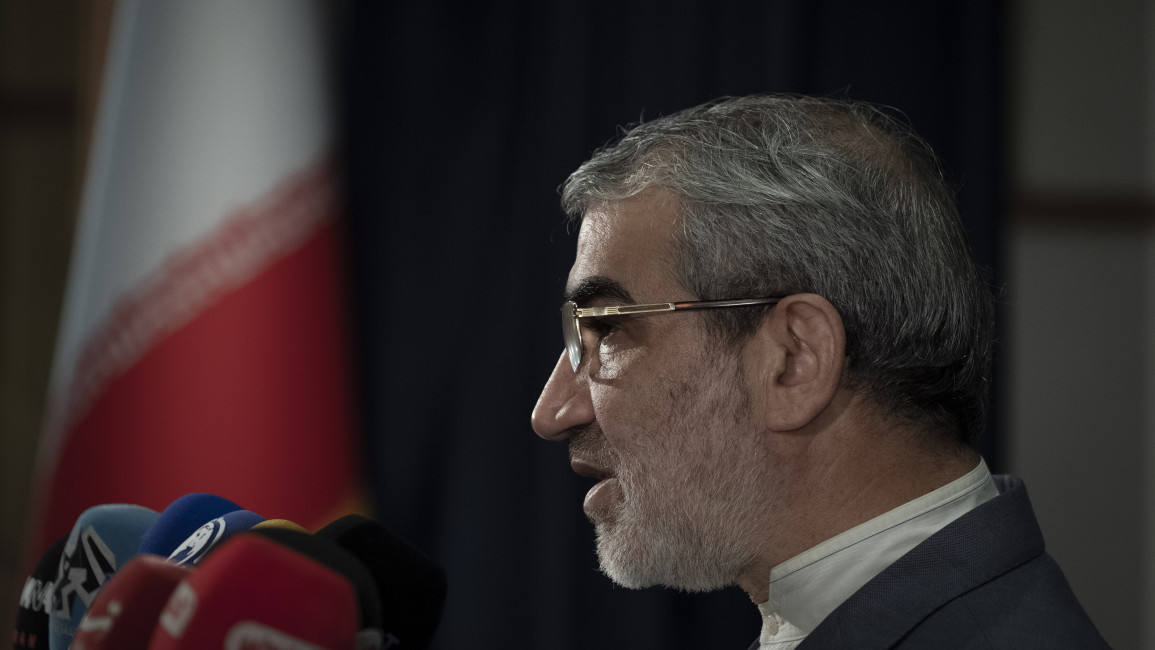AP Interview: Iran presidential candidates await vetting
Approving a variety of candidates for Iran’s presidential election could help boost turnout for a vote that authorities already worry may see little enthusiasm, a spokesman for the panel that examines them said Tuesday.
Abbas Ali Kadkhodaei’s comments came after more than 590 people registered to run during a five-day span last week — far less than the 1,630 people who registered in 2017.
Kadkhodaei, spokesman for the Guardian Council, talked to The Associated Press as the state-owned polling center ISPA has warned of the possibility of a turnout as low as 39% — the lowest since the 1979 Islamic Revolution.
As Iran’s theocracy partially bases its legitimacy on turnout numbers, officials likely will try to pique the interest of a public worn down by the raging pandemic and an ailing economy ground down by American sanctions.
The “presence of candidates with diverse orientations can possibly add to the participation,” Kadkhodaei said.
The 12-member Guardian Council, a body of senior clerics and legal experts, vets candidates for office as well as legislation passed by the Iranian parliament. Though only half the members are appointed by Iran's Supreme Leader Ayatollah Ali Khamenei, the panel approves candidates under the 82-year-old cleric's watch.
Within Iran, candidates exist on a political spectrum that broadly includes hard-liners who want to expand Iran’s nuclear program, moderates who hold onto the status quo and reformists who want to change the theocracy from within.
Those calling for radical change find themselves blocked from even running for office by the Guardian Council. That's even though Kadkhodaei stressed the council's members wouldn't be swayed by fiery remarks of the candidates.
"The Guardian Council will never assess the qualifications based on mere statements containing criticism and protest, especially verbal criticisms,” he said.
That comment appeared aimed at the hard-line former President Mahmoud Ahmadinejad, who has threatened to launch a boycott effort of the vote if the Guardian Council disqualified him. The council rejected Ahmadinejad in 2017 after the former president ignored Khamenei's warning to him not to run. This time, however, Khamenei hasn't directly commented on his run.
Read more: Iran ex-president Ahmadinejad will run in presidential race: state TV
The registration process for Iran's election is set to last five days, after which candidates' suitability for the role will be vetted by the powerful Guardian Council.https://t.co/2VXe9tbQAx
— The New Arab (@The_NewArab) May 11, 2021
More than 590 people registered during a five-day span last week, all seeking to replace the relatively moderate President Hassan Rouhani, who is term limited from running again. That's compared to some 1,630 hopefuls who registered in 2017.
Among the top candidates is Iran’s hard-line judiciary chief Ebrahim Raisi, a cleric who unsuccessfully ran against Rouhani in 2017. The public has widely grown disenchanted with Rouhani’s administration after 2018, when then-President Donald Trump unilaterally withdrew America from the nuclear deal.
Kadkhodaei said some 40 women registered last week, but that there's been no “particular change” in the process. That suggests the women will again be barred from running as the Iranian constitution uses the Farsi word “rajol,” or “man,” to describe who can run. Activists have argued one of the word's other meanings, “statesman,” could be applied to both men and women.
Iran’s 2020 parliamentary vote saw only a 42.5% turnout, the lowest ever since 1979. Iran’s 2017 presidential election saw a 73% turnout. Government statistics suggest 59.3 million people will be eligible to vote in June 18 election.
“The public, social and political expectations always desire a high turnout,” Kadkhodaei said. “Nevertheless, from the legal and lawful point of view, low turnout does not bring about any legal problems” with the election's credibility.



